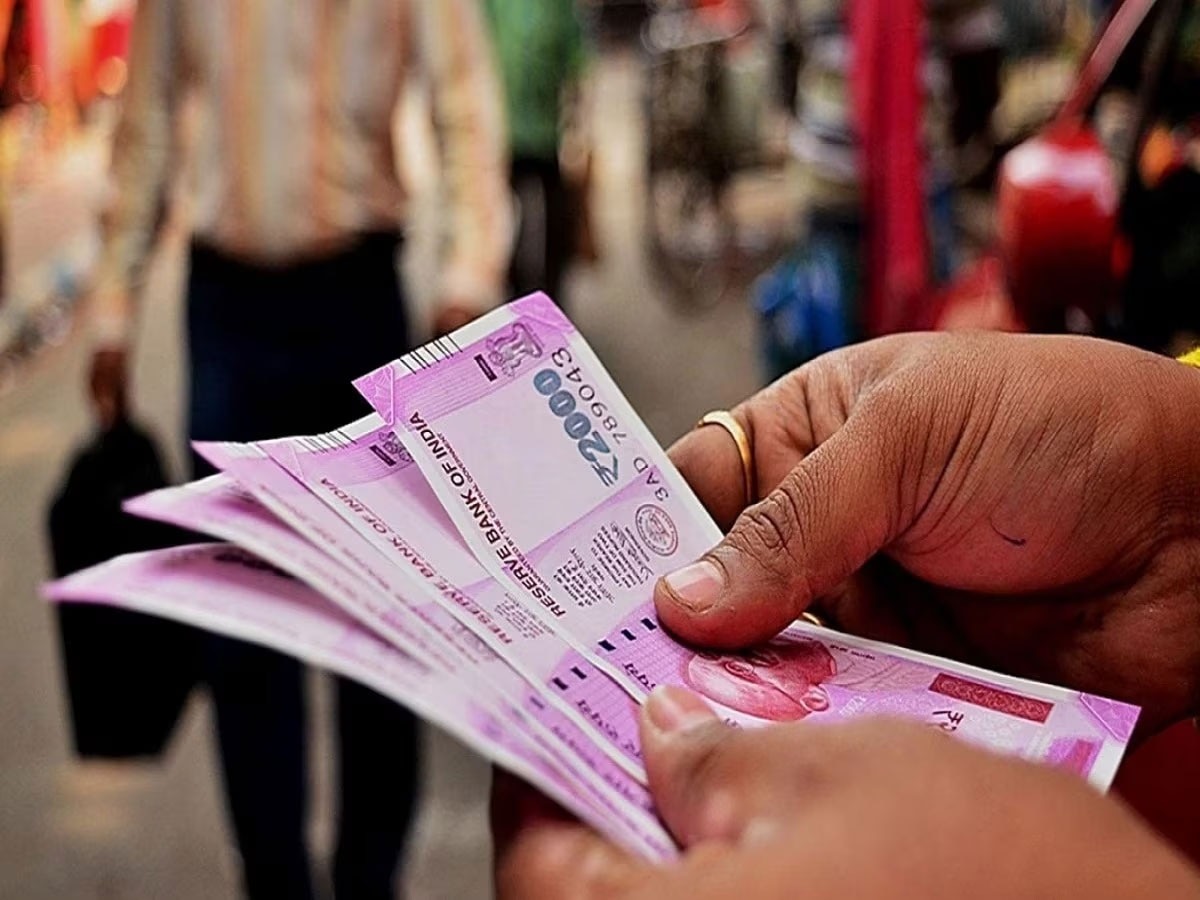
 Unveiling the RBI’s Latest Update on ₹2000 Notes: What You Need to Know
Unveiling the RBI’s Latest Update on ₹2000 Notes: What You Need to Know
RBI’s Move and the Current Scenario
The Reserve Bank of India (RBI) has recently issued a new update on ₹2000 notes, stirring discussions and uncertainties among the public. As of now, approximately 97.26% of these notes have re-entered the banking system, signaling a significant shift. However, a substantial value of ₹9,760 crores in ₹2000 notes still circulates in the market.
The Announcement and the Market Dynamics
On May 19, the RBI declared its intention to withdraw the ₹2000 banknotes from circulation. At that time, the total value of the circulating ₹2000 notes in the market was a staggering ₹3.56 lakh crores. Despite more than six months passing since the announcement, the full return of these notes is yet to materialize.
Remaining Notes and Legal Tender Status
As of November 30, 2023, ₹9,760 crores worth of ₹2000 notes are still in circulation. The RBI assures the public that these notes will remain legal tender. Individuals can deposit or exchange these notes at various RBI offices across the country.
Options for Exchange and Deposits
To facilitate the exchange or deposit of ₹2000 notes, individuals can visit any of the 19 regional offices of the RBI. Additionally, postal services are available for those who prefer to deposit the notes directly into their bank accounts.
Regional Offices for Exchange and Deposit
- Ahmedabad:
- Address: Mahaprabandhak Bharatiya Reserve Bank, Nirgam Vibhag Dvitiya Tal, Gandhi Bridge, Ahmedabad 380014.
- Bengaluru:
- Address: Prabhari Adhikari, Upbhokta Shiksha Evam Sanrakshan Karyalaya, Bharatiya Reserve Bank 10/3/8, Nrupathunga Road, Bengaluru-560 001, Phone: 080-22180397
- Belapur:
- Address: Up Mahaprabandhak Bharatiya Reserve Bank, Nirgam Vibhag Plot Number 3, Sector-10, H.H Nirmala Devi Marg, CBD Belapur, Navi Mumbai – 400 614
- Bhopal:
- Address: Up Mahaprabandhak Bharatiya Reserve Bank, Nirgam Vibhag, Hoshangabad Road, Post Box Number 32, Bhopal 462 011.
- Bhubaneshwar:
- Address: Up Mahaprabandhak Bharatiya Reserve Bank, Nirgam Vibhag Paschim Jawaharlal Nehru Marg, Post Box Number 16, Bhubaneshwar-751 001
- Chandigarh:
- Address: Up Mahaprabandhak Bharatiya Reserve Bank, Nirgam Vibhag Central Vista, Telephone Bhavan ke Samne, Sector 17, Chandigarh – 160017
- Chennai:
- Address: Mahaprabandhak Bharatiya Reserve Bank, Nirgam Vibhag Fort Glacis Number-16, Rajaji Salai, Post Box Number 40, Chennai- 600 001
- Guwahati:
- Address: Mahaprabandhak Bharatiya Reserve Bank, Nirgam Vibhag Station Road, Panbazar, Post Box Number 120, Guwahati-781 001
- Hyderabad:
- Address: Mahaprabandhak Nirgam Vibhag Bharatiya Reserve Bank 6-1-65, Sachivalaya Road, Saifabad, Hyderabad – 500 004
- Jaipur:
- Address: Mahaprabandhak, Nirgam Vibhag Bharatiya Reserve Bank Rambagh Circle, Tonk Road, Post Box Number 12, Jaipur – 302 004
- Jammu:
- Address: Up Mahaprabandhak Bharatiya Reserve Bank, Nirgam Vibhag Rail Head Complex, Jammu – 180 012
- Kanpur:
- Address: Mahaprabandhak Nirgam Vibhag Bharatiya Reserve Bank MG Marg, Post Box Number 82/142 Kanpur – 208001
- Kolkata:
- Address: Mahaprabandhak Nirgam Vibhag Bharatiya Reserve Bank Post Bag Number 49 Kolkata-700 001
- Mumbai:
- Address: Mahaprabandhak Bharatiya Reserve Bank, Nirgam Vibhag Main Building, Shahid Bhagat Singh Marg, Fort, Mumbai – 400 001
- Nagpur:
- Address: Mahaprabandhak Bharatiya Reserve Bank, Nirgam Vibhag Main Office Building, Dr. Raghavendra Rao Road, Post Box Number 15, Civil Lines, Nagpur -440 001
- New Delhi:
- Address: Mahaprabandhak Bharatiya Reserve Bank, Nirgam Vibhag 6, Sansad Marg, New Delhi – 110 001
- Patna:
- Address: Up Mahaprabandhak Bharatiya Reserve Bank, Nirgam Vibhag, Dakshin Gandhi Maidan Post Box Number 162 Patna – 800 001
- Thiruvananthapuram:
- Address: Up Mahaprabandhak Bharatiya Reserve Bank, Nirgam Vibhag, Bakery Junction, Post Box Number – 6507, Thiruvananthapuram – 695033
What Lies Ahead
In conclusion, the RBI’s move to withdraw ₹2000 notes has created a sense of curiosity and concern among the public. Despite the significant percentage of notes already returned to the banking system, a substantial amount continues to circulate. The option for individuals to exchange or deposit these notes at various RBI offices provides a mechanism for compliance.
Read More: Navratna Multi-Bagger How Bharat Electronics BEL Turned 1 Lakh into ₹46 Lakh in 10 Years

 Share
Share



